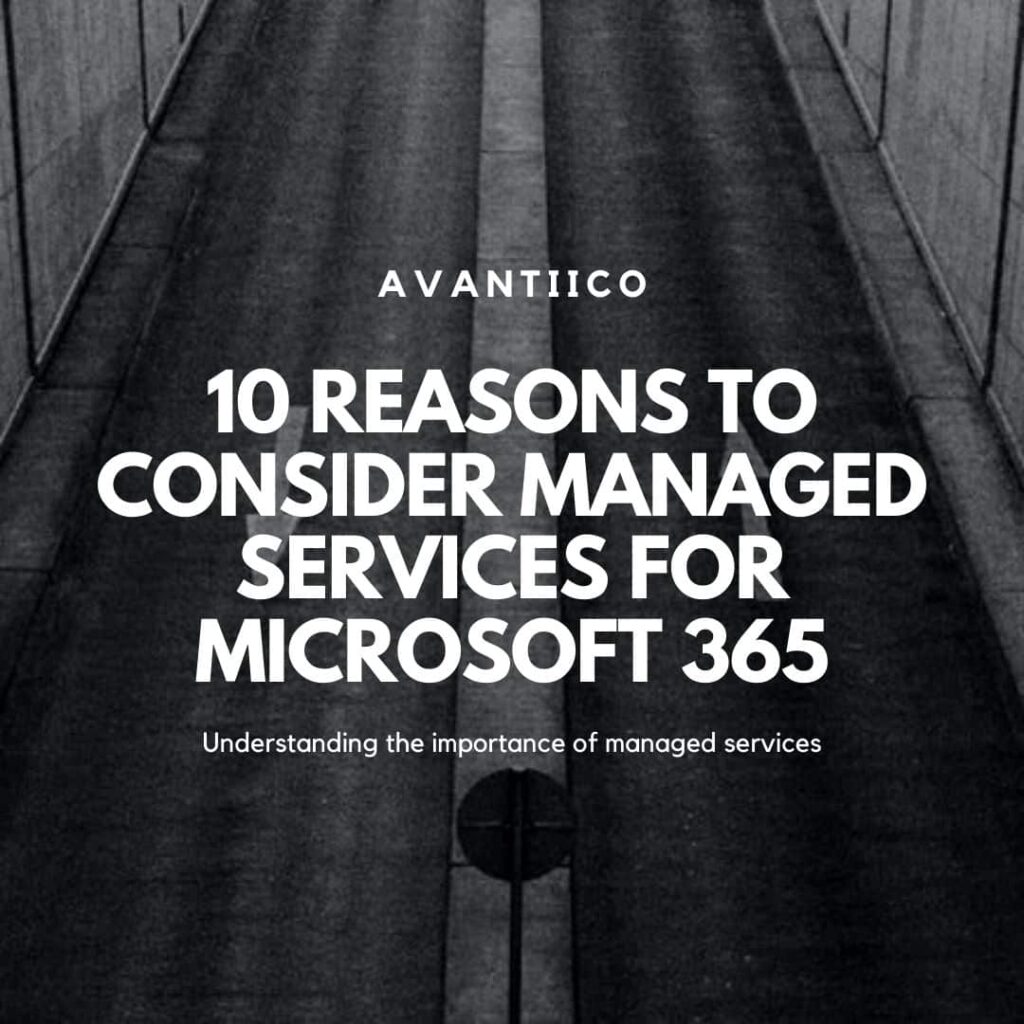Advanced Multi Company Solution, Microsoft Dynamics 365, Selection
Future-Proofing Sports & Entertainment ERP: From Dynamics GP to Dynamics 365 F&SCM
Introduction
With Microsoft signaling the eventual sunsetting of Dynamics GP (meaning it will no longer be sold or supported), many GP customers will need to migrate to a new ERP system — especially for players in the sports and entertainment industry.
New perpetual GP licenses are no longer available as of April 1st, 2025 and new subscription licenses cannot be acquired after April 1st, 2026. The ability to acquire licenses is important, but product enhancements, security updates, patches, and security updates will all end on December 31st, 2029.
If your business is currently on Dynamics Great Plains and in the sports and entertainment industry, it’s time to upgrade to Finance & Supply Chain Management.
Modernizing Sports & Entertainment ERP
Why Teams & Venues Are Migrating to Dynamics 365 F&SCM
Avantiico has been working with teams in the NFL, NBA, and NHL as well some of US’s largest venue and entertainment operators who are rethinking their long-term ERP strategy. These teams, venues, and operators are looking to modernize, adopt more automation, and incorporate AI (such Microsoft Co-Pilot) to unify their business operations and the overall fan experience.
While Dynamics GP has served as a trusted on-premises system for years, it lacks modern accounting and reporting functionalities, scalability, and real-time integration frameworks that IT and Accounting teams need to help manage their fast-paced, multifaceted operations and growing IT ecosystem.
Over the past two years, we’ve seen a rise in requests from renowned American sports teams asking for assistance in migrating from GP to Microsoft Dynamics 365 Finance and Supply Chain Management (F&SCM). D365 F&SCM is the natural upgrade/migration because it’s a tier one ERP solution with top line accounting functionalities. It helps streamline financial processes, delivers real-time visibility and reporting across business units and legal entities, and seamlessly integrates with critical in-place systems (i.e. ticketing platforms, point-of-sale solutions, and broadcast revenue tracking).
Why Sports & Entertainment Teams Choose D365 F&SCM Over Legacy ERP
Dynamics 365 F&SCM gives sports and entertainment organizations centralized control over financials, operations, and logistics. With multiple revenue streams, real-time financial visibility, budgeting, and compliance across regions are critical.
The platform’s advanced inventory and asset management capabilities allow for seamless tracking and optimization — from fan merchandise to venue equipment — while AI-driven demand forecasting helps anticipate event-based spikes in sales and resource needs.

What truly sets D365 F&SCM apart for the sports and entertainment industry is its seamless integration with CRM and marketing tools, allowing for targeted fan engagement and loyalty programs.
It also supports vendor and sponsorship management by tracking contracts and performance metrics. On top of this, custom dashboards and real-time insights give executives the data needed for smart, urgent decision-making, whether for a single concert or a multi-city road trip.
Shortcomings of Microsoft Dynamics GP
Microsoft Dynamics GP has become increasingly misaligned with the evolving needs of organizations in the sports and entertainment industry. This is because in recent years, operations have evolved and become much more complex and digitally driven.
Given that GP hasn’t received investments for almost a decade, we often hear from our customers’ accounting teams that more finance automation functionalities (i.e. AP Automation, intelligent procurement/sourcing, reconciliation, journal import automation, treasure automation etc.) would help improve team efficiency, bottom-line and manual recurrent data entry across many team members. Another common concern is lack of integration with existing CRM applications such as D365 Sales, Salesforce, and HubSpot.
On the other hand, D365 F&SCM is very flexible in terms of how much functionality you want to run directly out of the ERP vs. integrating with external systems like POS or Warehouse Management. Still, some companies prefer to integrate with their existing solutions, which can be done with ease in D365 F&SCM.
Here’s a more in-depth look at the shortcomings of Dynamics GP:
Lack of Real-Time Data Access, Reporting, and Advanced Analytics
Sports and entertainment organizations rely on up-to-the-minute financial insights to manage diverse and unpredictable revenue streams such as ticket sales, concessions, sponsorships, and much more. Dynamics GP’s outdated reporting capabilities often require manual data exports or the use of third-party tools to generate actionable insights. This often results in delays and a lack of agility during the decision-making process.
Poor Integration Capabilities
Since it’s a legacy on-premises system, Dynamics GP wasn’t designed with modern, cloud-based ecosystems in mind. Therefore, it does not connect seamlessly with ticketing platforms like Ticketmaster, sponsorship management, point-of-sale systems (for food, beverage, merchandise etc.), and digital marketing platforms. These challenges often result in fragmented/manipulated data, an excess of duplicated/manual efforts (download data, upload data, no automated workflows), and limited visibility across departments.
This is a serious disadvantage, particularly for industries like sports and entertainment that necessitate cross-functional coordination and rapid responsiveness to shifting market dynamics and fan engagement trends.
Scalability Concerns
Sports and entertainment organizations often experience significant operational fluctuations due to the nature of their respective industries, and Dynamics GP’s architecture doesn’t easily accommodate these operational shifts brought on by seasonal schedules, touring events, private events, or special promotions.
As a result, those using Dynamics GP often require the deployment of manual workarounds or costly adjustments to their infrastructure. The rigidity of such an outdated system can also stifle operational innovation and make it difficult to chart a course to 1. Scale efficiently and 2. Effectively adapt to changing business models.
Dynamics GP End-of-Life
In September of 2024, Microsoft officially announced that Dynamics GP would gradually sunset. This strategic decision is a result of Microsoft’s continued efforts to align their product portfolio with a long-term vision for cloud-based solutions.
While Dynamics GP is not being immediately discontinued, this announcement signals a notable shift regarding Microsoft’s development priorities. They’ve opted to instead focus on Dynamics 365, particularly Finance and Supply Chain Management, which offer more advanced functionality, modern architecture, and cloud-native capabilities.
Support Timeline & Growing Risks
The official roadmap extends support through 2028 (for Modern Lifecycle Policy users), but updates will be limited to regulatory fixes. As GP nears end-of-life:
- Skilled GP resources will decline, making maintenance harder and costlier.
- Updates and support are already becoming scarce, increasing the total cost of ownership.
- Sports & entertainment organizations are feeling these pains today, struggling with an ERP system that lacks a future-proof roadmap.
When the system reaches end-of-life, the availability of skilled GP resources is expected to decline. As a result, ongoing maintenance and support for Dynamics GP will inevitably become more challenging and costly.
These growing pains are already being felt by many organizations in the sports and entertainment industry. It’s becoming increasingly difficult to access updates and support, resulting in a higher total cost of ownership and exemplifying the risk of relying on an ERP system that lacks a long-term roadmap.
The Urgent Need to Plan Ahead
This sunsetting approach gives the organizations currently on Dynamics GP time to plan for what’s next while signaling an urgent need to assess their long-term ERP strategy. For many, this announcement has prompted proactive discussions regarding a migration to Dynamics 365 Finance and Supply Chain Management.
Key Benefits of Migrating to Dynamics 365 F&SCM
Migrating from Dynamics GP to F&SCM is much more than just an infrastructure upgrade; it’s a forward-looking strategic shift that yields automation capabilities and malleability that’s required to compete in an increasingly digital and experience-driven industry.
Integration With Other Microsoft Platforms
In contrast to Dynamics GP’s aging on-premises infrastructure, Dynamics 365 F&SCM enables seamless integration with other modern platforms in the Microsoft Ecosystem such as Power BI, Microsoft Teams, and the Power Platform for advanced approval workflows and automation of data. Advanced financial management tools also help organizations handle multi-entity and multi-currency operations, simplify intercompany transactions, and improve long-term financial planning.
A Unified Platform for Sports & Entertainment Operations
Whether it’s importing, posting/validating payroll, expense, POS, etc. data across legal entities, managing live and private events, or optimizing merchandise and concessions inventory, Dynamics 365 F&SCM supports dynamic operational needs within a single, unified platform.
Dynamics 365 F&SCM supports dynamic operational needs within a single, unified platform. This includes importing and validating data (such as payroll, expenses, and POS) across legal entities, managing both live and private events, and optimizing merchandise and concessions inventory.
D365 F&SCM Tier One Modules
Dynamics 365 F&SCM has a long list of standard tier one modules across Finance and Supply Chain, including:
Financial Management
- Accounts Payable
- Accounts Receivable
- AP Automation + OCR
- Budgeting
- Cash & Bank Management
- Security & Compliance
- Cost Accounting
- Fixed Assets
- Asset Leasing and Asset Maintenance
- General Ledger
- Financial Reporting
- Reporting and Power BI integration
- Globalization
- Project Management and Accounting
- Credit Management
- Subscription Billing
- Expense Management
- Vendor Collaboration Portal
Supply Chain Management
- Asset Management
- Cost Management
- Global Inventory Accounting
- Inventory Management
- IoT Intelligence
- Master Planning
- Procurement and Sourcing
- Product Information Management
- Production Control
- Engineering Change Management
- Rebate Management
- Sales and Marketing
- Service Management
- Transportation Management
- Landed Cost
- Advanced Warehouse
- Warehouse Management
- Supply Chain Management Device
With the broad functionality span within Dynamics 365 F&SCM and customers heavy use of the Microsoft Office package (including Co-Pilot, Azure, D365 Sales and all the additional automation products/functionalities in the MSFT ecosystem) Dynamics 365 F&SCM is a solid product that meets business requirements.
By transitioning to Dynamics 365, sports and entertainment organizations can reduce their dependence on legacy systems and IT infrastructure, lower maintenance costs, and benefit from ongoing innovation and security delivered by Microsoft’s cloud.
Solving Core Sports & Entertainment Industry Pain Points
Microsoft Dynamics GP wasn’t designed to handle the complexity, speed, and scalability required in today’s multi-channel, high-volume sports and entertainment environment. But with F&SCM, you gain a modern, cloud-based alternative that addresses the specific operational and financial challenges of sports teams, venues, and entertainment enterprises.
Centralized Data Across Revenue Streams
Sports and entertainment organizations generate revenue from diverse sources. One of the most pressing challenges is fragmented data across these systems, leading to operational inefficiencies and poor financial visibility.
Dynamics 365 F&SCM keeps data in one centralized database and not a database per system (procurement, expenses, fixed assets etc.), which delivers higher data quality.
While Dynamics 365 F&SCM manages core operational data such as financials, inventory, procurement, and sales, Microsoft Fabric extends this capability by consolidating data from additional systems like CRM, POS, and third-party platforms into OneLake. With tools like Dataflows and Power BI, organizations can also create real-time, cross-functional insights that combine operational data from Dynamics 365 F&SCM with broader revenue data. This integration eliminates data silos, strengthens reporting, and empowers faster, more strategic decision-making across finance and supply chain operations.

Real-Time Visibility and Reporting
Legacy systems like Dynamics GP rely on manual data exports and batch processes that delay critical financial insights. In contrast, Dynamics 365 F&SCM and Microsoft Fabric deliver real-time reporting and dashboards through embedded Power BI, allowing decision-makers to make prompt and data-driven decisions when it matters most.
Support for Complex Financial Structures
Sports and entertainment organizations majorly rely on an event-based or seasonal revenue model, which can add complexity to revenue recognition, budgeting, and cost allocation. GP has limited capabilities in this area, often requiring manual workarounds.
Dynamics 365 F&SCM includes advanced financial management tools such as automated revenue recognition, multi-entity consolidations, and project-based accounting — ensuring compliance and accuracy while reducing administrative burden.
Fan Engagement and CRM Integration
To stay competitive, organizations must deliver personalized experiences that drive fan loyalty. However, GP operates in a silo and lacks native integration with marketing platforms or CRM systems.
Dynamics 365 F&SCM solves this by bridging ERP and CRM, offering a unified view of each customer or fan. Teams can connect financial, operational, and engagement data—enabling more effective marketing campaigns, smarter pricing strategies, and deeper fan relationships. This can be achieved by integrating data across third party systems using Microsoft’s Dataverse and Power Platform as a database and Avantiico’s Multi Company Automation tool as a data bridge.
This combined solution provides finance and operations teams with a centralized, real-time view of performance across the organization, alongside a unified way of building and maintaining integrations for future needs.
Scalable Cloud Infrastructure
High-traffic events like playoff games or live concerts can strain on-premises systems like GP, which weren’t built for modern scale. Dynamics 365, hosted on Microsoft Azure, provides a cloud-native infrastructure that scales automatically during peak times and ensures high availability, which is especially critical for organizations with seasonal or event-driven demand spikes.
Compliance and Audit Readiness
Dynamics GP lacks many of the built-in controls needed for modern compliance standards, while D365 F&SCM includes automated audit trails, role-based access, and contract lifecycle tools to support internal controls and regulatory compliance. By modernizing their ERP system, stakeholders in the sports and entertainment industry significantly reduce the risk of manual errors and missed obligations.
Migrating from Dynamics GP to F&SCM: What to Expect
This process is an admittedly significant undertaking. But with the right approach and expert support, it can be a seamless and highly rewarding transformation. The outcome is a modern, scalable solution that’s well positioned to handle today’s complex operational demands and tomorrow’s growth goals.
Because this migration requires a high level of expertise, a trusted implementation partner plays a critical role in this journey. From the initial assessment and roadmap development, through data cleansing and end-user training, a partner should be there to ensure that every step in the process aligns with your business priorities. A trusted D365 partner (like Avantiico) can also manage change management and risk mitigation, so your operations continue running without disruption during the transition.
Beyond the go-live date, ongoing support is essential to long-term success. Migrating to Dynamics 365 is not just a system upgrade; it’s a fundamental shift in how your business operates, makes data-driven decisions, and serves customers.
Our team provides continuous post-deployment support, security monitoring, performance optimization, and user enablement to ensure you gain full value from your investment.
Whether you’re motivated by the need to modernize aging infrastructure, improve reporting, or enable remote access and collaboration, migrating to Dynamics 365 positions your organization for greater agility, automation, and resilience in a fast-changing digital environment.
While the typical upgrade path for Dynamics GP and NAV is to Microsoft Business Central, rapidly growing businesses that are no longer considered “mid-market” may require an upgrade to a more comprehensive, enterprise-level solution like Dynamics 365.
AMCS x D365 F&SCM: A Fitting Solution for Sports & Entertainment Orgs.
Avantiico’s Advanced Multi-Company Solution (AMCS) is a finance Automation productivity tool that helps solve industry-specific challenges with financial data. The most notable being expense reports, point-of-sale (POS) systems, and ticket systems, all of which can seamlessly integrate with Dynamics 365 Finance & Supply Chain Management (F&SCM).
POS & Ticketing System Integration
Through API based integrations, AMCS extracts data from the POS system(s) into Dynamics 365 F&SCM and provides real time visibility into transactions. Additionally, it facilitates the consolidation of POS data from multiple legal entities into a one unified financial viewpoint. Automation of this data exchange eliminates any previously occurring manual errors and is essential for tax compliance
AMCS also facilitates ticking operations through an API-based integration that helps accelerate real time data retrieval, gives financial updates, and streamlines the reconciliation process. It can even support the consolidation of ticketing revenue across multiple legal entities and optimize revenue recognition.
Expense Reports
AMCS significantly improves the way professional sports organizations manage expense reporting, particularly in environments involving multiple legal entities such as team operations, stadium management, merchandising, and event hosting. It effectively centralizes expense tracking across legal entities, automates intercompany expense allocation, and offers corporate credit card integration.
Closing Thoughts
The sports and entertainment industry continues to evolve rapidly, and organizations relying on legacy systems like Dynamics GP risk falling behind. With GP’s impending end-of-life, now is the ideal time to reassess, restructure, and realign with a future-ready ERP strategy.
Migrating to D365 F&SCM is more than just an upgrade — it’s a strategic transformation. This move unlocks automation, real-time insights, and scalable solutions tailored to meet the unique demands of this high-paced, experience-driven industry.
With proper guidance and support, transitioning to D365 F&SCM can establish a foundation for operational excellence. It’s an opportunity to enhance fan engagement while positioning your organization for sustainable growth well into the future.
Contact us for more information on how D365 F&SCM can serve the sports and entertainment industry, details on AMCS, or for a quick and free consultation.






